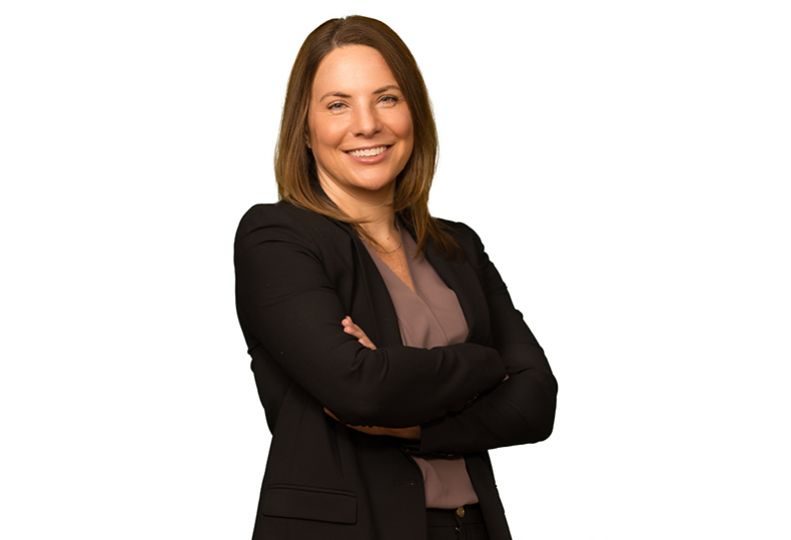Meet & Greet with Avista Corp.'s Heather Rosentrater
~

Heather Rosentrater is joining the ranks of Spokane’s growing ecosystem of female leaders as Avista Corp.’s next president—and the company’s first female president in its 134-year history.
Effective Oct. 1, Rosentrater, 46, will become the power company’s 15th president since it was founded in 1889. With the promotion from senior vice president, she will retain the role of chief operating officer as she steps into the president’s role.
Rosentrater is a fifth-generation Spokanite and, like her parents, a Gonzaga University graduate.
In 1996, while still an undergraduate student, Rosentrater began her career at Avista as an engineering technician for Avista Labs. Over the past 27 years, she’s held various leadership positions at the company, including vice president of energy delivery, which was expanded later to senior vice president of energy delivery and shared services.
The Journal recently sat down with Rosentrater to talk about her new role, women in leadership, and what she hopes to accomplish.
What drew you to a career in this field?
I initially wasn’t thinking I would be working at a utility. In high school, I knew I wanted to do something that helped people, something that solved important problems. I was passionate about sustainability and supporting that area of society.
I was also really interested in technology. My mom was an electronics technician, and I was fortunate to have her influence in that way. Later in college, when I got the opportunity to start working here as a student technician, I really recognized that the utility industry checks all the boxes from a sustainability perspective.
Initially thinking about a utility that’s over 100 years old, I thought, well, haven’t they figured everything out? But when I got here, I realized technology is continuing to advance, and we have the opportunity to continue to apply that new technology and do things in new and better ways for our customers.
Did you ever think of doing anything else?
One of the great things about Avista and the company itself is that it’s small enough that we can be agile, and you can feel like you know most of your co-workers. But also, there’s so many different roles, and the energy industry in general is so complex that I wanted something where I’m continuing to learn.
Even after 27 years here, I still learn new things every day. I love that about the energy industry. At Avista, I’ve been able to do a lot of different roles, and that’s helped me connect the dots between all the different functions that we do and how they connect to each other.
I think it’s important for me to continue to get comfortable being uncomfortable. Moving into new roles where I’m not the expert, where I need to depend on others and work through others, I get an opportunity to be on a steep part of that learning curve, and I really enjoy getting to learn new things.
What is going to be the learning curve when you become president?
I think some of it is letting go. I’m someone who really likes to dig in. I like the details, and I have perspectives about how we should do things. I recognize that in this role, I need to lead through my team and empower them and trust them. I’ll be focusing more on engaging in the community and engaging with our analysts and my peers in the industry.
I’ll be spending time with our employees in a different way to help paint the vision of our strategy and the vision of the future, so that everybody is as excited about our future as I am.
What is your vision?
Helping to create that pathway and vision of how to achieve a future of clean, reliable, safe energy for our customers in the most affordable way possible. We know that there are a lot of things coming at us that are putting pressure on costs. And so how can we help ensure that we balance all that, do it as affordable as possible? With innovation, I’m excited about advancing technology.
Energy is a very complex topic. We want to help our customers understand how they can help us achieve those goals of clean, affordable, safe, and reliable energy—which sometimes aren’t complementary. So how can we help achieve that balance? There’s a lot of challenges but a lot of tools for us that are coming that can help us get there if we are open to doing things in different ways.
How do you feel about joining the cohort of female leaders in Spokane?
I always look back even in Spokane, having some great female leader role models, and think how much I appreciate those that came before me and who were able to break through the previous barriers.
I’m from Millwood, and we had a female mayor, Jeanne Batson. I think as a kid to see someone in leadership like that locally was great.
I think it can be an unrecognized barrier sometimes. When you don’t see others that look like you in these roles, you don’t realize that job could be for you, and self-select out of those roles.
Having those examples in Spokane and in the region growing up was helpful for me. It’s great to see that we have more of those examples for future generations to see.





